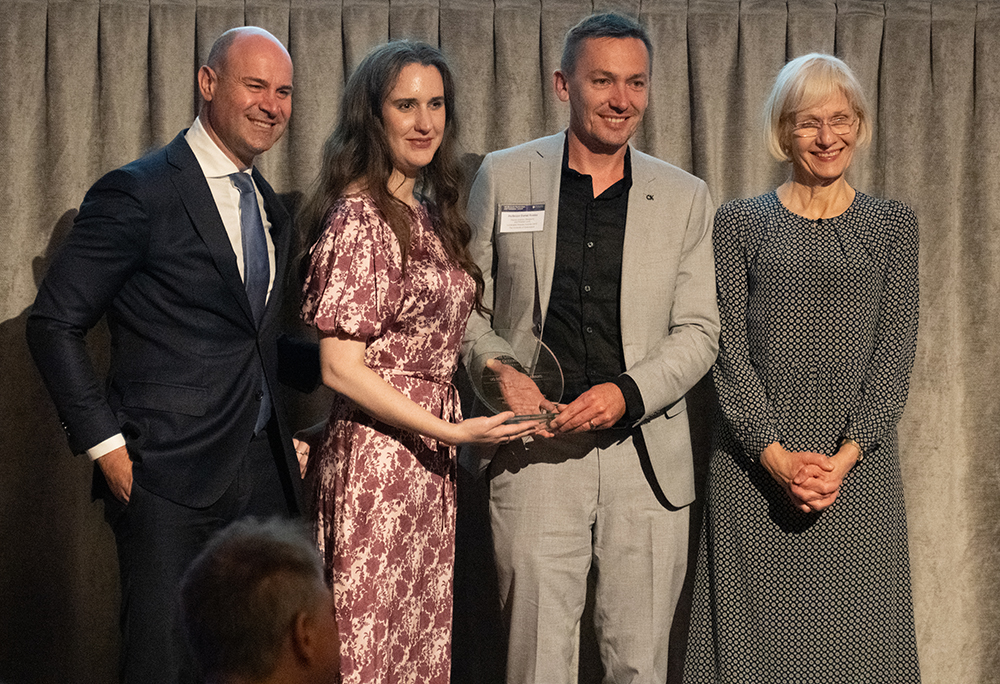Research which underpinned a new United Nations Environment Assembly resolution on Environmental aspects of minerals and metals management has been recognised at The University of Queensland’s 2022 Research and Translation Awards.

The project, led by Professor Daniel Franks who heads the Sustainable Minerals Institute’s Development Minerals Program, received the Research Impact Award at the ceremony in Brisbane.
Professor Franks said the team were invited to convene global consultations under the mandate of a United Nations Environment Assembly (UNEA) resolution to strengthen international cooperation on mineral governance.
“Minerals are essential for global development and to the achievement of the UN Sustainable Development Goals (SDGs),” he said.
“However, in contrast to other natural resources, they are not explicitly referenced within the constituent goals and targets of the SDGs.
“We were engaged to collect information on sustainable practices, identify knowledge gaps and options for implementation strategies, and undertake an overview of existing assessments of different governance initiatives and approaches relating to sustainable management of metal and mineral resources.”
The SMI team of Professor Franks and Julia Keenan undertook the work at the invitation of the Assistant-Secretary General of the United Nations Environment Programme (UNEP), with funding provided by the Federal Office of the Environment of the Government of Switzerland.
In collaboration with UNEP colleagues Elisa Tonda and Angela Kariuki, the team conducted 23 consultative meetings which were attended by 1280 people from 123 countries.
“The consultations revealed a range of priority areas which found broad agreement across regions and provided the basis upon which recommendations and suggested actions were presented for consideration by the UN Environment Assembly at its fifth session,” Professor Franks said.
“On the basis of our work, UN Member States in March 2022 adopted UNEA resolution 5/12 on ‘Environmental aspects of minerals and metals management’, which asks UNEP to convene consultations that feed into a global intergovernmental meeting, with the aim of developing proposals to enhance international cooperation and the environmental sustainability of minerals in line with the 2030 Agenda for Sustainable Development.”
During the project, the research team also established new collaborations and partnerships with UNEP’s Global Resource Information Database (GRID) in Geneva, Switzerland and GRID Arendal in Norway, which have resulted in separate additional funded research and publications.
“The project provided us with the opportunity to deepen our theoretical understandings of the topic and translate these understandings for impact at a global scale, and we are delighted that our work has been recognised by the University.
“Our program aims to improve sustainability and human development outcomes from Development Minerals, and to help realise the UN Sustainable Development Goals, particularly at the local level where minerals and materials are mined, processed, manufactured, and used,” Professor Franks said.
Media: Gillian Ievers g.ievers@uq.edu.au 0438 121757



